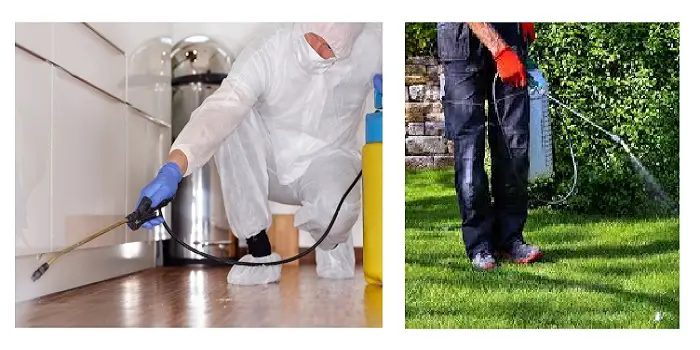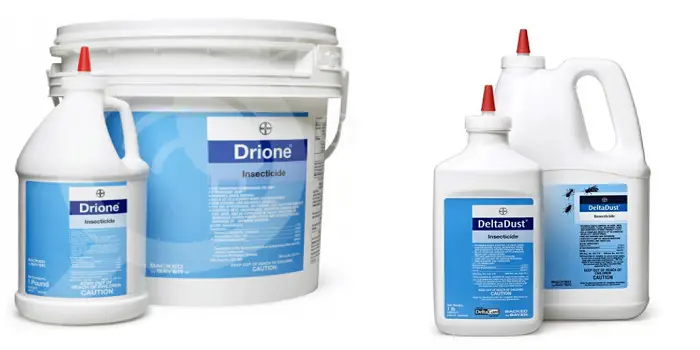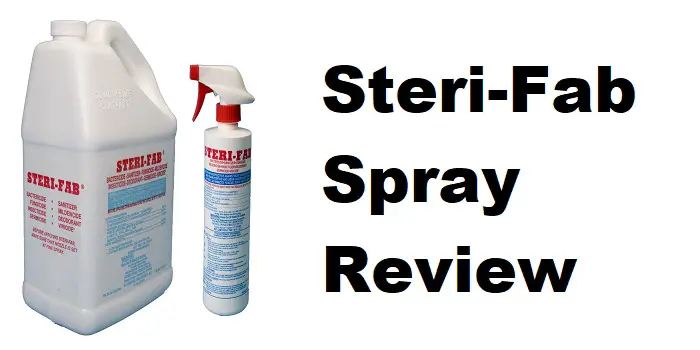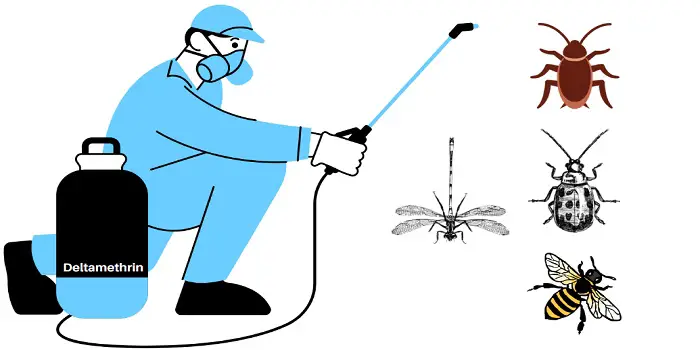
A pesticide, as the name implies, is designed to kill unwanted pests, which are mostly insects that feed inside the home, the garden, or on plants on your property that you want to keep.
But while some pesticides have no ill effects on humans or animals, some will have harmful effects when consumed or inhaled.
Even touching certain pesticides when they are still wet may irritate the skin.
The proper use of pesticides is therefore needed to ensure that they do the job they were designed while not affecting the health of those you want to protect.
Are Pesticides Safe After They Dry?
Most pesticides become inactive once they dry. But that does not include all pesticides and knowing the difference is important.
The general rule is that after 24 to 36 hours, most pesticides dry out and are safe for the family in the house.
However, if you are using pesticides such as lawn chemicals, they are known to stay on the grass in a wet form for a minimum of 48 hours.
The pesticides used outdoors, most notably to control grubs, tend to become safe once they are fully dry.
This generally means 48 hours after the treatment has been applied.
Although humans are vulnerable before the pesticides dry, pets and kids are in a more dangerous circumstance given their proximity to the pesticides on the ground.
Some exceptions include pesticides that are used inside the home. This is especially true of areas where food is being prepared.
The surface must be cleaned properly before such pesticides are used, and once applied, the area must be cleaned and rinsed again to remove all residue.
If you fumigate your home, the first thing you should do once it is safe to re-enter is clean the areas of food preparation, then clean everything else to ensure that the residue is removed correctly.
Health Effects of Pesticides on Humans
The effects of poisoning by pesticides can be quite detrimental depending on the amount that is inhaled (or ingested) plus the age of the individual.
For example, an adult exposed to a small amount of pesticide may suffer little to no noticeable effect.
While a small child may react far more noticeably when exposed to the same amount of pesticide.
The entry points for pesticides to the human body include the skin or dermal region, orally through the mouth, or respiratory when inhaled into the lungs through the nose or mouth.
The dermal entry point normally happens when bare skin touches wet pesticide.
However, it is more common to inhale pesticides through the nose or mouth.
Such pesticides can also be ingested when touched and then placed in the mouth, as young children and pets will often do.
Side effects on humans
Various pest control chemicals can be harmful to humans and can show several side effects, especially when not used carefully as per the guidelines.
Immediate side effects can range from skin irritation, dizziness, and headache to chest pain, nausea, vomiting, diarrhea, to blurred vision.
If exposed for longer, even the dried chemicals can cause breathing difficulties, fatigue, constant weakness, sleeping problems, infertility, or even cancer.
The elderly, pregnant ladies or kids are more likely to be hit hard due to these pest control chemicals, and therefore, their contact with these chemical substances should be avoided entirely.
Side effects on pets at home
Not only for humans, but pest control chemicals can also prove harmful to your dogs, cats, rabbits, or other pet animals if not used correctly.
Few side effects that are generally seen in pets include fever, diarrhea, weakness, difficulty in breathing, loss of coordination, etc.
Keep in mind that poisoning through pesticides (even when dried out) can be quite detrimental.
If you suspect that a family member or pet has been poisoned, seek immediate medical treatment.
The longer you wait, the more the poison will affect their vital organs, which may cause permanent damage depending on how much was consumed.

How to Keep Your Family Safe from Pesticides?
The improper use of pesticides is what normally leads to issues developing for family members and pets.
Safety begins by reading the label and following all instructions.
The label will tell you how to use the product and how it should be stored so that it will not leak or otherwise create harm.
Most pesticides come with a warning label informing you of the possible dangers. If you follow the instructions, then you should be safe.
1- Check the Labels:
The warning labels on insecticides such as Raid spray come in three categories, caution, warning, and danger.
Caution is the least dangerous of all pesticides which means that the toxicity levels are mild.
But that does not mean they are safe.
The warning means that the contents have a higher degree of toxicity than caution.
You will need to take more care when handling such products.
Finally, danger means that the product contains the highest level of toxicity.
You will need extra care when using and storing such products.
This often means wearing gloves, eye protection, and perhaps donning a mask or respirator when in use.
2- Clear the Room or Home when Using:
When using pesticides indoors, open the windows if instructed and clear the room so that no one else is exposed.
If you are fumigating your home, you will need to shut all windows and leave so the pesticide will have maximum effect.
Once the fumigation process is complete, you can open the windows and turn on the fans to remove any residue.
3- Keep An Eye on Storage:
If you have leftover insecticides after the usage, be sure to store pesticides away from small children and pets.
Keep them on the shelf or in a cabinet where only you have access.
Make sure that pesticides are kept in a cool, dry place to last longer and be used when needed.
When storing, also make sure that the container should hold the pesticide without any leakage.
Check the bottles used to store the pesticides every so often and see if the container is compromised.
If it is, dispose of the pesticide immediately in a safe manner.
Even if the leakage is small, the vapors produced may be enough to cause harm to those inside the home.
The Conclusion
Pesticides are an important product in keeping unwanted pests away from your home, garden, or property.
Although most of them are safe after they are dry, we cannot say this for all types of pesticides.
It is better to be safe than sorry, so start by reading the instructions on the label.
Once you know how to use the product, apply it where it is needed.
Once dry, clear away any residue if you are indoors and ventilate the area properly.

Welcome to ProShieldPest.com. I am Tina Jones. I have been working as a pest removal professional in Winslow, Arizona lately. At present, I love to spend my time with my family as a retiree.
Here I share all my knowledge and experiences to help people understand better how they can stop pests at their homes without actually killing them. Hopefully, the information you will find here will help in safeguarding your home! You can check more about me here.




